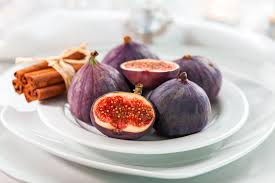 Radish are part of the cruciferous vegetable like broccoli, spouts and cauliflower but are typically underappreciated pushed around on crudité and generally over looked. Despite this radishes are said to be both antibacterial and anti-fungal as well as a mild diuretic. They are a very rich source of Vitamin C, contain both folic acid and anthocyanins which are believed to be excellent for easing sinus congestion, sore throats and chest colds.
Radish are part of the cruciferous vegetable like broccoli, spouts and cauliflower but are typically underappreciated pushed around on crudité and generally over looked. Despite this radishes are said to be both antibacterial and anti-fungal as well as a mild diuretic. They are a very rich source of Vitamin C, contain both folic acid and anthocyanins which are believed to be excellent for easing sinus congestion, sore throats and chest colds.
Radishes also contain a group of compounds called isothiocyanates. Researchers at University in India tested parts of the radish against human cancer cells. The results of their study were published in the September 2010 issue of "Plant Foods For Human Nutrition," and show that the compounds in the radish bulb and root, affect genetic pathways in the cancer cells, inducing cancer cell death.
Radishes also contain fiber which helps ensure your bowels fully function. Fiber can also slow the absorption of sugar which could help improve blood sugar levels. A healthy diet that includes insoluble fiber may also reduce the risk of developing type 2 diabetes.
Their high vitamin C content means that regular consumption of radishes could help prevent viral infections. Other benefits of vitamin C may include protection against immune system deficiencies, cardiovascular disease, prenatal health problems, eye disease, and even skin wrinkling.
They contain a variety of sulfur-based chemicals which can help increase the flow of bile, which is helpful in maintain a healthy gallbladder and liver, and could also help improve digestion. Radishes are also good to eat with starchy foods such as pasta, potatoes, and grains as they have enzymes that aid in the secretion of digestive juices
The green tops are highly nutritious and mineral rich and should be valued as their roots. They are also delicious so don’t throw them away! They contain far more vitamin C, calcium, and protein than the roots. Add them to green smoothies, salads or juice them.




